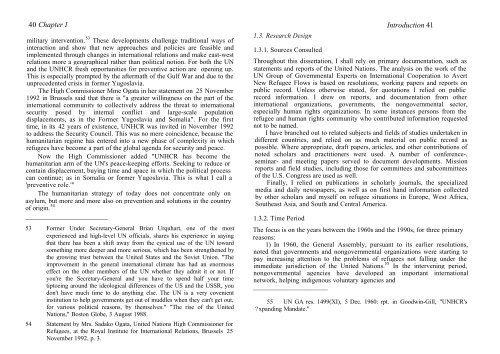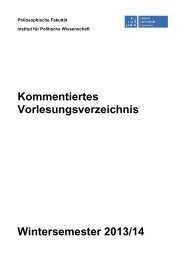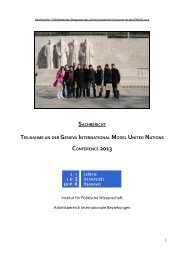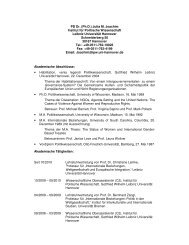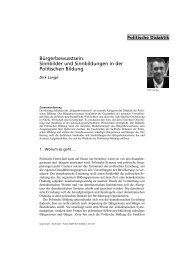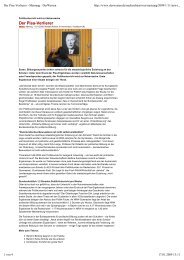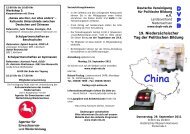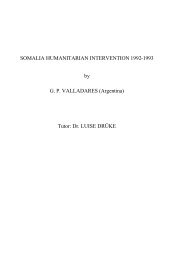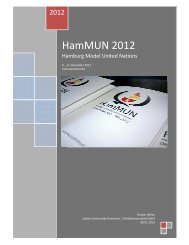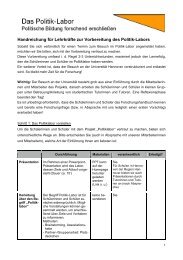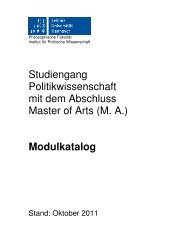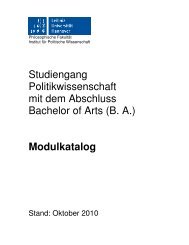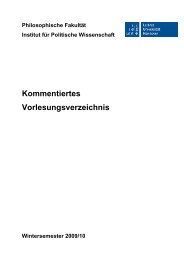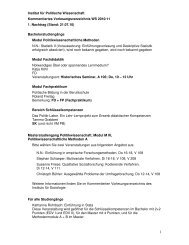Preventive Action for Refugee Producing Situations
Preventive Action for Refugee Producing Situations
Preventive Action for Refugee Producing Situations
Create successful ePaper yourself
Turn your PDF publications into a flip-book with our unique Google optimized e-Paper software.
40 Chapter 1 Introduction 41<br />
military intervention. 53 These developments challenge traditional ways of<br />
interaction and show that new approaches and policies are feasible and<br />
implemented through changes in international relations and make east-west<br />
relations more a geographical rather than political notion. For both the UN<br />
and the UNHCR fresh opportunities <strong>for</strong> preventive action are opening up.<br />
This is especially prompted by the aftermath of the Gulf War and due to the<br />
unprecedented crisis in <strong>for</strong>mer Yugoslavia.<br />
The High Commissioner Mme Ogata in her statement on 25 November<br />
1992 in Brussels said that there is "a greater willingness on the part of the<br />
international community to collectively address the threat to international<br />
security posed by internal conflict and large-scale population<br />
displacements, as in the Former Yugoslavia and Somalia". For the first<br />
time, in its 42 years of existence, UNHCR was invited in November 1992<br />
to address the Security Council. This was no mere coincidence, because the<br />
humanitarian regime has entered into a new phase of complexity in which<br />
refugees have become a part of the global agenda <strong>for</strong> security and peace.<br />
Now the High Commissioner added "UNHCR has become the<br />
humanitarian arm of the UN's peace-keeping ef<strong>for</strong>ts. Seeking to reduce or<br />
contain displacement, buying time and space in which the political process<br />
can continue; as in Somalia or <strong>for</strong>mer Yugoslavia. This is what I call a<br />
'preventive role.'"<br />
The humanitarian strategy of today does not concentrate only on<br />
asylum, but more and more also on prevention and solutions in the country<br />
of origin. 54<br />
________________________<br />
53 Former Under Secretary-General Brian Urquhart, one of the most<br />
experienced and high-level UN officials, shares his experience in saying<br />
that there has been a shift away from the cynical use of the UN toward<br />
something more deeper and more serious, which has been strengthened by<br />
the growing trust between the United States and the Soviet Union. "The<br />
improvement in the general international climate has had an enormous<br />
effect on the other members of the UN whether they admit it or not. If<br />
you're the Secretary-General and you have to spend half your time<br />
tiptoeing around the ideological differences of the US and the USSR, you<br />
don't have much time to do anything else. The UN is a very covenient<br />
institution to help governments get out of muddles when they can't get out,<br />
<strong>for</strong> various political reasons, by themselves." "The rise of the United<br />
Nations," Boston Globe, 3 August 1988.<br />
54 Statement by Mrs. Sadako Ogata, United Nations High Commissioner <strong>for</strong><br />
<strong>Refugee</strong>s, at the Royal Institute <strong>for</strong> International Relations, Brussels 25<br />
November 1992, p. 3.<br />
1.3. Research Design<br />
1.3.1. Sources Consulted<br />
Throughout this dissertation, I shall rely on primary documentation, such as<br />
statements and reports of the United Nations. The analysis on the work of the<br />
UN Group of Governmental Experts on International Cooperation to Avert<br />
New <strong>Refugee</strong> Flows is based on resolutions, working papers and reports on<br />
public record. Unless otherwise stated, <strong>for</strong> quotations I relied on public<br />
record in<strong>for</strong>mation. I drew on reports, and documentation from other<br />
international organizations, governments, the nongovernmental sector,<br />
especially human rights organizations. In some instances persons from the<br />
refugee and human rights community who contributed in<strong>for</strong>mation requested<br />
not to be named.<br />
I have branched out to related subjects and fields of studies undertaken in<br />
different countries, and relied on as much material on public record as<br />
possible. Where appropriate, draft papers, articles, and other contributions of<br />
noted scholars and practitioners were used. A number of conference-,<br />
seminar- and meeting papers served to document developments. Mission<br />
reports and field studies, including those <strong>for</strong> committees and subcommittees<br />
of the U.S. Congress are used as well.<br />
Finally, I relied on publications in scholarly journals, the specialized<br />
media and daily newspapers, as well as on first hand in<strong>for</strong>mation collected<br />
by other scholars and myself on refugee situations in Europe, West Africa,<br />
Southeast Asia, and South and Central America.<br />
1.3.2. Time Period<br />
The focus is on the years between the 1960s and the 1990s, <strong>for</strong> three primary<br />
reasons:<br />
1) In 1960, the General Assembly, pursuant to its earlier resolutions,<br />
noted that governments and nongovernmental organizations were starting to<br />
pay increasing attention to the problems of refugees not falling under the<br />
immediate jurisdiction of the United Nations. 55 In the intervening period,<br />
nongovernmental agencies have developed an important international<br />
network, helping indigenous voluntary agencies and<br />
_________________________<br />
55 UN GA res. 1499(XI), 5 Dec. 1960: rpt. in Goodwin-Gill, "UNHCR's<br />
? xpanding Mandate."


